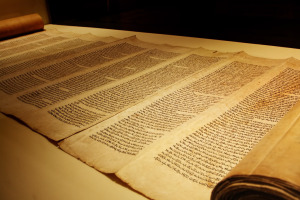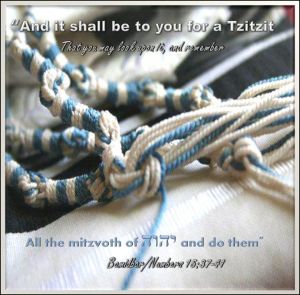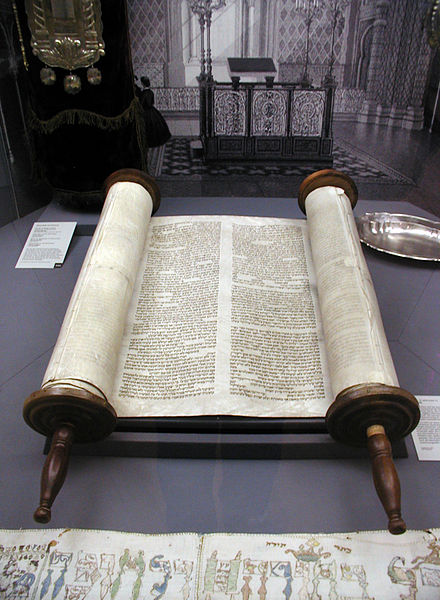כי תצא
Parsha Ki Tetze
Debarim (Deuteronomy) 21:10-25:19
“When you go out to fight against your enemies, and YaHuWaH your Elohim shall give them into your hand, and you shall take them captive”– Debarim (Deuteronomy) 21:10
כי תצא Ki tetze literally means “for when you go out” in context we read l’milchama “unto war” al obecha, literally “on top of your enemies.” This is to imply that all Yisrael’s enemies would be placed under their feet just from the act of going out to battle, ensuring their triumph. This unique section of Torah has more mitswot (commands/connection) listed than any other Torah Potion and will cover no less than seventy four decrees that make up approximately 1/8th of the laws found within the entire revelation of Torah.
The first focus of כי תצא “Ki Tetze” is the concept of YaHuWaH giving, or gifting literally, these defeated enemies into the hands of Yisrael (Yashar’al). These defeated enemies who were not slain but allowed to retain their life would now be taken away as a captive. In the case of eshet yefat to’ar, which is a woman of beautiful form, the Torah introduces us to the concept of moral warfare. Firstly, warfare is never to be launched upon a nation for their women or other such vain purposes and when war is at hand a man may not be intimate or “know” a woman by consent or by force. If he does capture a woman whom he delights in, as long as that nation was not to be completely placed under the ban, he could marry her. However he cannot do so immediately, first she must shave the hair of her head, trim her nails and change her clothing from the garments of her captivity. After this she is to mourn for her father and mother for one month. At the end of the month she could be married and thus join the covenant. This is very unlike the barbaric acts of war done in other nations. In Yisrael (Yashar’al) even the captive woman has to be married before her husband could know her. Also we see further if for whatever reason he does not delight in her and no longer wants to be with her, she cannot be sold as a captive, but can be released only if she desires to leave.
This brings us to the concept of the inheritance of the firstborn (bikkur). If a man has two wives and one is loved and the other is not, then even if the firstborn is from the unloved wife he is to receive a double portion in his inheritance. So no matter the prominence of the wife, the firstborn is to perpetually receive a double portion.
From this thought the Torah branches out to the idea of a wayward or rebellious son. A rebellious son can destroy the entire family. The Torah instructs if his father and mother have chastened him, and yet he still refuses to obey, then the father and mother have the ability, if they both agree, to carry their son to the elders of the city. They shall declare, “this son of ours is wayward and rebellious, he does not obey us and is a glutton and a drunkard” and all the men of the city shall pelt him with stones so that he dies. This is done to eradicate evil in Yisrael (Yashar’al) so that they hear and fear. In the annuls of Yisrael’s history there is rarely such a case when a son suffered this punishment, though it did happen. The rebellious son will lie, cheat, and steal to fulfill the gluttony of his habits whether it is to fill his stomach, keep him drunk or line his pockets. Eventually the life of gluttony and drunkenness leads to all manners of sin to maintain the buzz that one receives from intoxicants and materialism. Eventually the parents are aiding and a criminal which is not only preying on them but on their relatives, loved ones and friends. Eventually a person such as this will go to any length and hurt anyone necessary to get what it is they desire. Such a person is to be stopped before they are allowed to steal or even murder and the sole responsibility to foresee and protect the community and family is the father and mother of the wayward son.
When any person such as the wayward son is put to death the Torah decrees that afterward their body should hang from a tree.
Wayyiqra (Leviticus) 21: 23 “Let his body not remain overnight on the tree, for you shall certainly bury him the same day – for he who is hanged is accursed of Elohim – so that you do not defile the land which YaHuWaH your Elohim is giving you as an inheritance.
For this reason Yahuwshuwa Ha Mashyach (The Messiah) was hung upon a tree and took on the curse from the Torah that he may make a way of pardon for our transgressions as prophesied by YashaYAHUW (Isaiah) 53. He was not a rebellious son, but the paid the price for the rebellious son’s of Israel.
YashaYahuw 53: 5 But He was pierced for our transgressions, He was crushed for our crooked- nesses. The chastisement for our peace was upon Him, and by His stripes we are healed.
Further laws include helping your brother’s ox or sheep if they go astray and if he you do not know to whom they belong or if that owner is too far from you then you take them home and keep it with you until your brother seeks for it.
This same principle holds true to a garment or any other such article that may be found. If you see your brother’s animal fall on its way you should help without fail. A woman is not to wear men’s clothing or men wear a women’s clothing, this is a grievous sin called toe’bah meaning abomination, sickening and revolting.
When one finds a bird and the bird has eggs, he can take the eggs only but must let the mother bird go. This is logical since if one takes the mother bird without the eggs then the eggs will spoil and if they take both the mother will not be allowed to produce more eggs to allow the cycle of life to continue. The main outline here is compassion and preservation of species.
You shall not sow your vineyard with diverse seeds. Plowing using an ox and donkey in the same yoke together is forbidden. No one is to wear sha’atnez, which is a fabric, mixed of wool and linen. The idea here is purity and qodeshah, which is why it is followed by the command for Yisrael (Yashar’al) to wear tsit tsiyot which are tassels containing at least one thread of blue in the corners of their garments.
If a man has a wife and he no longer delights in her insomuch as to slander her by claiming that she was not a virgin when he married her, then the parents will present to the elders the garments of proof of her maidenhood and the man who slandered his wife shall receive public lashes for punishment. If however he is speaking the truth, the woman is to be stoned to death. If a woman commits adultery both parties are to be put to death. If a woman who is engaged to be married and she is humbled in a city and does not cry out she is guilty as well as her offender, if she cries out she is innocent. If an engaged woman is humbled outside the city she is considered to be innocent and only the man who took her is stoned to death. Again Mosheh (Mushah) states the prohibition of taking your father’s wife ie your mother or stepmother. No child of illegitimate birth can enter the assembly of YaHuWaH along with Ammonites and Moabites.
Debarim (Deuteronomy) 25: 13 “You shall not have in your bag differing weights, a heavy and a light.14“You shall not have in your house differing measures, a large and a small.5“You shall have a perfect and right weight, a perfect and right measure, so that they prolong your days on the soil which YaHuWaH your Elohim is giving you.
As mentioned before 1/8th of Torah law is found in this Torah Portion. To summarize some of the additional laws, Mosheh (Mushah) gave to his people we see the basic construct of society. This includes everything from hygiene and purity to maintaining the military forces and camps. One is not to return an escaped slave to his master, a worker must be paid on the day he works, a debtor must be treated fairly.
Debarim (Deuteronomy)24:16“Fathers are not put to death for their children, and children are not put to death for their fathers, each is to die for his own sin.17 “Do not twist the right-ruling of a stranger or the fatherless, nor take the garment of a widow.18 “But you shall remember that you were a slave in Mitsrayim, and that YaHuWaH your Elohim redeemed you from there. Therefore I am commanding you to do this word.19“When you reap your harvest in your field, and have forgotten a sheaf in the field, do not go back to get it. Let it be for the stranger, for the fatherless, and for the widow, so that YaHuWaH your Elohim might bless you in all the work of your hands.
Interest cannot be exacted upon any loan given to a fellow Yisraelite. If a man discovers his wife has been untrue to his covenant and has committed adultery then he can write her a bill of divorce. If a man has a wife and he dies before giving her a child, the brother of the woman is to take the woman as his wife and bring up children for his brother. However this is the choice of the brother, if he refuses he is publicly shamed but not killed.
The Torah Portion concludes with the instructions to remember the deeds of Amalek who attacked Yisrael (Yashar’al). The command is given to “blot out the remembrance of Amalek from the earth.” The Amelekites are considered relatives to the Nephilim. It is the job of the Yisraelite to wage spiritual and physical warfare against abominations, idol worship and sorcery. In all these matters we see that YaHuWaH is righteous and his ways are perfect.





